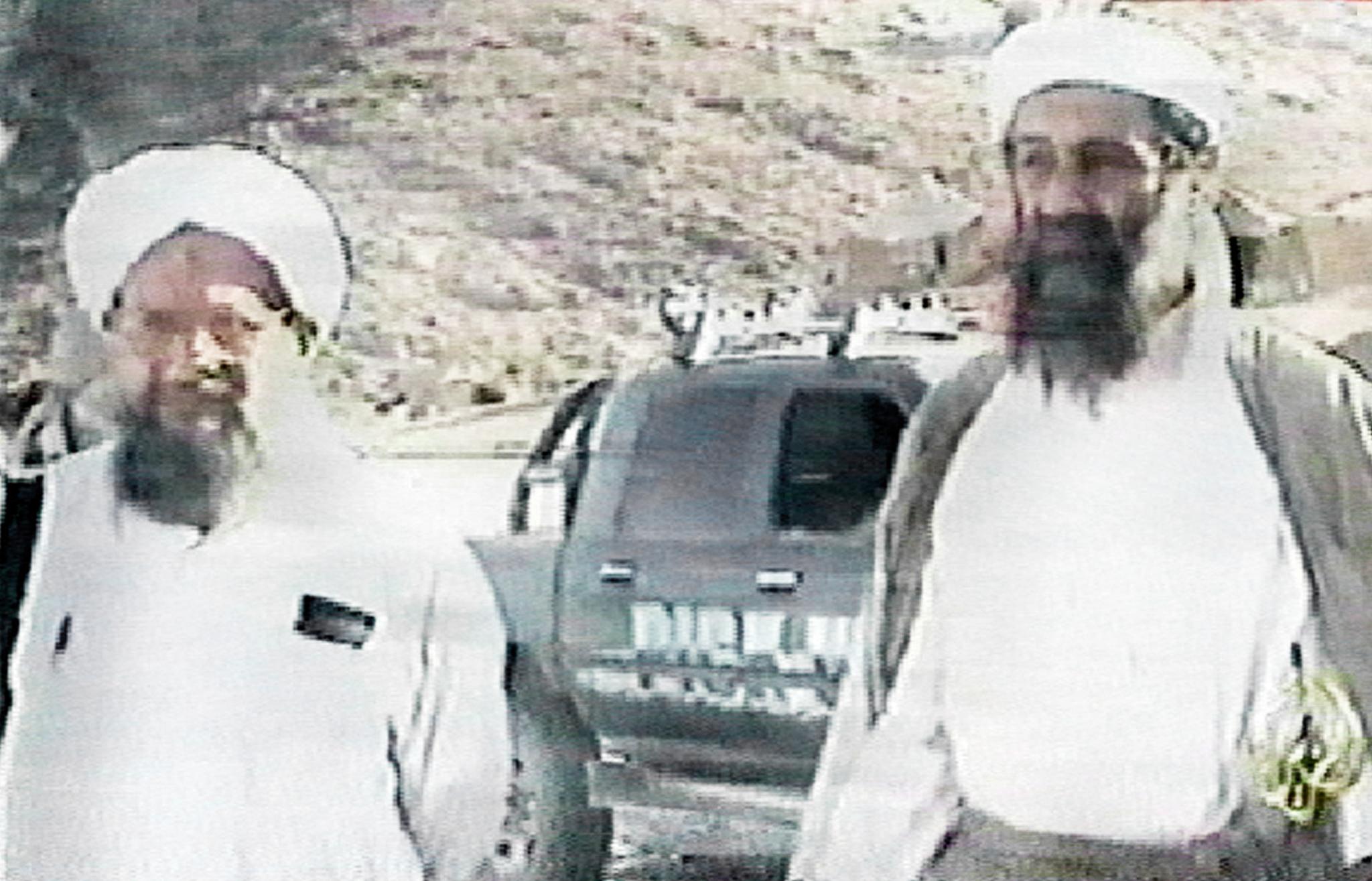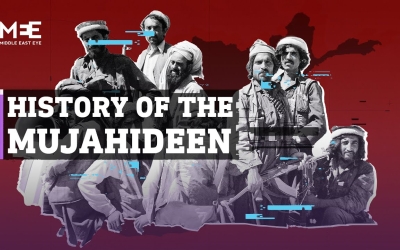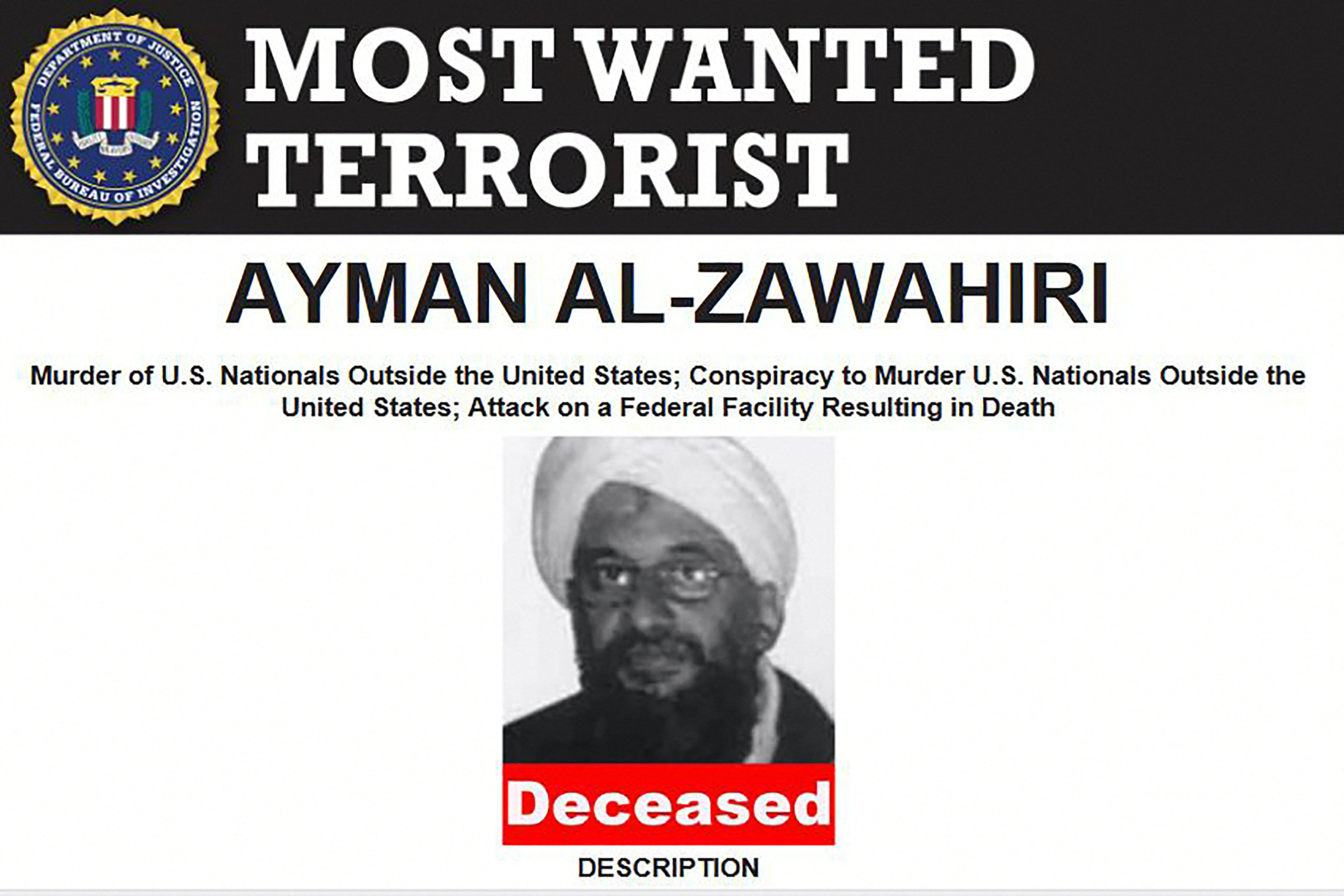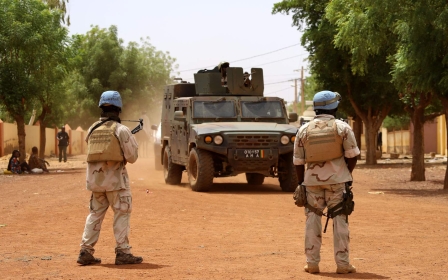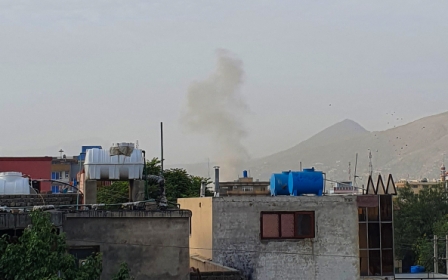Ayman al-Zawahiri: Al-Qaeda leader who oversaw group's decline and rise

US President Joe Biden has taken a leaf out of the book of his former boss, Barack Obama, and successfully assassinated the leader of al-Qaeda.
However, while Obama's killing of Osama Bin Laden provoked dancing in the streets and chants of "USA, USA" from ordinary Americans, the killing of his successor, Ayman al-Zawahiri, has triggered a much more muted response. That is largely because in the years since taking over the notorious militant group, in 2011, Zawahiri has overseen al-Qaeda's relative decline in influence, with the Islamic State group supplanting it as the number one transnational terror threat.
Compared with Bin Laden, the Egyptian-born physician was a much less charismatic and inspirational figure for the "Salafi Jihadist" movement, and al-Qaeda saw a number of splits under his leadership. And while al-Qaeda has managed to expand its presence in Yemen, Afghanistan and much of North Africa, analysts question how much this had to do with Zawahiri himself and how much it was down to the efforts of local leaders.
His death by a drone strike in downtown Kabul on 31 July once again leaves al-Qaeda without a figurehead, as well as removing one of the last veterans, albeit in a non-violent capacity, of the Soviet-Afghan war that helped recruit so many to the militant cause.
A young militant
New MEE newsletter: Jerusalem Dispatch
Sign up to get the latest insights and analysis on Israel-Palestine, alongside Turkey Unpacked and other MEE newsletters
Zawahiri was born in Giza on 19 June 1951, to a wealthy family with many links to political movements inside and outside Egypt, both Islamist and non-Islamist.
The Egypt he was born into was a monarchy in thrall to the British Empire, but one that would soon be overthrown in a military coup led by the nationalist Free Officers Movement movement. Under President Gamal Abdel Nasser, the government would appropriate private property, redistribute and cooperatise farmland, and promote the secularisation and "modernisation" of social reforms - all of which was an affront to Zawahiri's sensibilities.
At 14, he joined the Muslim Brotherhood, the pre-eminent Islamist force of the 20th century, and came under the sway of its most radical intellectual, Sayyid Qutb.
'We have sacrificed and we are still ready for more sacrifices until the victory of Islam'
- Ayman al-Zawahiri
Qutb believed the world had entered a period of jahiliyyah - "ignorance" in Arabic - in which humans had rebelled against divine rule in favour of the rule of secular human laws, and that the true Muslim community had ceased to exist. The only solution was the violent overthrow of these governments and reinstatement of true Islamic rule.
The writings of Qutb would prove deeply influential on Zawahiri, as they would on Bin Laden, and following Qutb's execution in 1966, he said he would make it his life's work to "put Qutb's vision into action".
In 1981, following the assassination of Egyptian President Anwar Sadat by Islamist militants, Zawahiri was one of the hundreds of people rounded up by police. By this point a member of Egyptian Islamic Jihad (EIJ), which would later be merged into al-Qaeda, Zawahiri could be seen in TV broadcasts defiantly lambasting Sadat, who was regarded as a traitor by many for signing a peace deal with Israel.
"We have sacrificed and we are still ready for more sacrifices until the victory of Islam," he had shouted from a courtroom cage.
He would eventually serve a three-year jail term for illegal arms possession.
Afghan war
At this time, the war in Afghanistan was hotting up. A Soviet-backed government in Afghanistan had enraged many locals and Islamic leaders through its repression and heavy-handed imposition of secular and socialist policies. In response, and with backing from the CIA, an insurgency was launched to oust the government.
Fearing the Soviet-backed government's overthrow, in 1979 the USSR sent in forces to bolster it, and subsequently militarily occupied the country. The Afghan-Soviet war would last more than a decade and cost hundreds of thousands of lives.
For many politically engaged Muslims, the conflict became a central cause and began attracting foreign fighters from around the world - known as mujahideen - eager to bolster the anti-Soviet forces.
Following his release from jail, Zawahiri travelled to Pakistan, where he worked as a medic, helping to heal wounded mujahideen fighters. It was around this time that he first came into contact with Bin Laden, a wealthy Saudi Arabian who had travelled to Afghanistan to fight the Soviets.
The defeat of the Soviet-backed government in 1989 would eventually leave Afghanistan in the hands of the Taliban, a militant group that held many of the same beliefs as al-Qaeda. Though links between the two groups would ebb and flow, the Taliban apparently never forgot Zawahiri's contribution to their cause - the house that he was killed in was reportedly owned by senior Taliban leader Sirajuddin Haqqani.
Forming al-Qaeda
By the 1990s, Zawahiri had become leader of Egyptian Islamic Jihad, which had declared war on the Egyptian government, then run by President Hosni Mubarak.
More than 1,200 Egyptians had died as a result of fighting between the security forces and EIJ, who also attempted to assassinate Mubarak in Ethiopia in 1995.
That same year, in response to a further crackdown on EIJ, Zawahiri ordered an attack on the Egyptian embassy in Islamabad. Sixteen people were killed when two cars filled with explosives rammed through the gates of the compound.
In 1998, EIJ was formally merged into al-Qaeda, which translates as "the base". In the wake of Saddam Hussein's invasion of Kuwait in 1990, a number of western armies (particularly the US) had poured forces into Gulf states to drive the Iraqis out of the Kuwaiti emirate and protect oil-producing allies, such as Saudi Arabia.
The presence of foreign forces on the soil of "Islamic lands" enraged Bin Laden and Zawahiri and - combined with ongoing Israeli occupation of Palestinian lands - provided their justification to expand their campaign.
"The ruling to kill the Americans and their allies - civilians and military - is an individual duty for every Muslim who can do it in any country in which it is possible to do it, in order to liberate the Al-Aqsa Mosque [in Jerusalem] and the holy mosque [in Mecca] from their grip, and in order for their armies to move out of all the lands of Islam, defeated and unable to threaten any Muslim," they wrote in a joint declaration in 1998.
"This is in accordance with the words of Almighty Allah, 'and fight the pagans all together as they fight you all together [and] fight them until there is no more tumult or oppression, and there prevail justice and faith in Allah'."
Three years later would see the event that would come to define their legacy, and make Bin Laden and al-Qaeda (although not necessarily Zawahiri) household names - the 11 September attacks on the World Trade Center in New York that left almost 3,000 people dead.
The attack had major repercussions around the world, sparking invasions of Afghanistan and Iraq by the US and its allies, and transforming al-Qaeda from a small cell of dedicated militants into a worldwide movement that would seize control of territories and inflict incalculable violence on Muslims and non-Muslims alike.
War on Terror
Following 9/11, the US State Department offered a $25m reward for information or intelligence leading to Zawahiri's capture.
Over the next 10 years, al-Qaeda spread its influence across the world.
Al-Qaeda in Iraq, led by the notoriously brutal Abu Musab al-Zarqawi, launched an insurgency against the US-led occupation and carried out thousands of sectarian attacks on Shias, Yazidis and Christians. Al-Qaeda in the Arabian Peninsula (AQAP) established itself in Yemen, but set its sights on the overthrow of the Saudi monarchy. Meanwhile, Al-Qaeda in the Islamic Maghreb (AQIM) aided al-Shabab militant group in their war for control in Somalia, as well as intervening in conflicts in Mali, Mauritania and Algeria.
The group's presence also stretched to the Philippines, Indonesia, India, Kashmir and elsewhere.
In the wake of the 2011 uprising against Syrian President Bashar al-Assad, al-Qaeda's fighters joined the opposition forces and became one of the most effective fighting groups against the Syrian government.
Throughout this time, Zawahiri - like Bin Laden - was believed be hiding somewhere along the Pakistan-Afghanistan border, helping to oversee the group's activities.
Death of Bin Laden and splits
In 2011, Bin Laden was killed by US Navy Seals in a raid on his hideout in Pakistan. His death sent shockwaves through the movement and Zawahiri quickly assumed command of al-Qaeda. However, the context for al-Qaeda's war on Middle Eastern governments was changing.
Though Zawahiri attempted to get on board with the Arab Spring, al-Qaeda was largely sidelined as a political actor - until things turned violent
In 2011, protests broke out across the Arab world, which saw the overthrow of a number of longtime rulers. Though the demonstrations had a strong Islamist contingent (albeit more ideologically aligned with the Muslim Brotherhood), they were overwhelmingly focused on material conditions and democratic rights.
Though Zawahiri attempted to get on board with the Arab Spring, al-Qaeda was largely sidelined as a political actor - at least, until things turned violent.
In Syria, war broke out after Assad opened fired on peaceful protesters. Al-Qaeda in Iraq expanded into Syria, nominally in support of Syrian rebel groups, forming al-Nusra Front. This proved an effective fighting force against Assad's government under the leadership of Abu Mohammed al-Jolani. But in 2013, Abu Bakr al-Baghdadi, the leader of Al-Qaeda in Iraq (by this time known as the Islamic State in Iraq), announced that al-Nusra Front would be merging with ISI in order to form the Islamic State in Syria and the Levant (ISIL).
Both Jolani and Zawahiri rejected the merger and Isil set out on its own with an aim to seize territory across Iraq and Syria and establish an Islamic state.
In 2014, Baghdadi declared the creation of a new caliphate after capturing the Iraqi city of Mosul, and rebranded his group the Islamic State (IS). The move enraged Zawahiri, who saw it as a challenge to his authority as the leader of the global Salafi-Jihadist movement.
As infighting broke out between al-Qaeda and IS in different regions, including Syria, he eventually officially declared war on IS, accusing them of fragmenting a common cause.
“We preferred to respond with as little as possible, out of our concern to extinguish the fire of sedition,” Zawahiri said in a tape released in 2015. "But Abu Bakr al-Baghdadi and his brothers did not leave us a choice, for they have demanded that all the mujahideen reject their confirmed pledges of allegiance, and to pledge allegiance to them for what they claim of a caliphate.”
However, IS, through a combination of sheer brutality and devastating international attacks, was soon able to push al-Qaeda out of the headlines and establish itself as the number one militant group. Much of this has been blamed on Zawahiri himself - while IS continued to venerate Bin Laden, Zawahiri's leadership was denounced as ineffective.
With al-Nusra Front also eventually severing ties with al-Qaeda (though nominally with Zawahiri's blessing), his weakness as a leader became more apparent. Lacking the charisma and influence of Bin Laden, and relegated to more of an advisory role for al-Qaeda branches, Zawahiri saw al-Qaeda's stature decline over many years, even following the effective defeat of IS in Iraq in 2017.
What next for al-Qaeda?
There has been much speculation about who could take over as leader of the world's most infamous militant organisation. Saif al-Adel, another Egyptian and veteran of the Soviet-Afghan war, has been tipped as most likely to succeed Zawahiri.
But the extent to which al-Qaeda is even centrally controlled any more is hotly debated. Bin Laden and Zawahiri operated as important figureheads and their words and teachings are still held in high regards by followers.
'The international context is favourable to al-Qaeda, which intends to be recognised again as the leader of global jihad'
- UN report
However, the days of 9/11-style attacks are apparently over - instead, al-Qaeda branches have focused on local conflicts, often drawing in specific regional grievances rather than planning grand schemes for world conquest.
And with Zawahiri's death, the number of those whose militancy was forged in the ideological struggles of the mid-to-late 20th century continues to dwindle.
But the return to power of the Taliban in Afghanistan last year, and the apparent protection they offered to Zawahiri, means things could be looking brighter for al-Qaeda. In July, a UN report stated that Zawahiri had recently shown "increased comfort and ability to communicate" with his friends in the Taliban administration.
"The international context is favourable to al-Qaeda, which intends to be recognised again as the leader of global jihad,” the report read.
Middle East Eye delivers independent and unrivalled coverage and analysis of the Middle East, North Africa and beyond. To learn more about republishing this content and the associated fees, please fill out this form. More about MEE can be found here.


